You are here
-
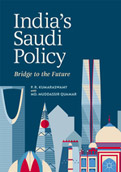
- Publisher: Palgrave Macmillan
2018
The book traces India’s Saudi Policy and locates the current state of bilateral relations and the challenges it faces. It argues that during the Cold War the relations were largely shaped by the Pakistan factor which in turn inhibited both sides from exploring the importance and value of one another. As a result, the relations were largely transactional and marginal. The end of the Cold War coincided with two interesting developments, namely, significant growth in India’s economic power and influence and the de-hyphenation of Pakistan from its Middle East policy. This resulted in greater political engagements between India and Saudi Arabia and was strengthened by the growing energy trade ties. For long expatiate population and haj have been the backbone of the relations, and they have been new instruments as India looks to enhance its engagements with the Kingdom through investments opportunities, political contacts, shared security concerns and strategic cooperation. India’s Saudi policy, however, face many challenges most importantly the regional instability, the Iran factor, low oil price and the international dynamics. The book will be the first comprehensive work on the India-Saudi relations. Though targeting a wider audience, it will be academically grounded and based on primary sources collected from India and Saudi Arabia.- E-book ISBN: 978-981-13-0794-2, Hardcopy ISBN: 978-981-13-0793-5,
- Price: E-book - E-book - $84.99, Hardcopy - $109.99
- Publisher: Palgrave Macmillan
-
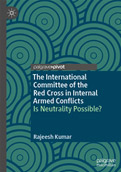
- Publisher: Palgrave Pivot
2018
This book critically examines the possible dilution of the neutrality principle of the International Committee of the Red Cross (ICRC) in internal armed conflicts. It begins with the proposition that the intervention of ICRC in internal armed conflicts led to compromises in neutrality, and questioned the autonomy and independence of the organization. The book also argues that the field operations of the international humanitarian organizations during internal armed conflicts are dependent on the authority exercised by the state in whose territory the conflict persists. The ICRC’s involvement in Sri Lanka and Sudan provides empirical support to validate these propositions and arguments.- E-book ISBN:978-981-13-2601-1, Hardcopy ISBN: 978-981-13-2600-4,
- Price: E-book - $54.99, Hardcopy - $69.99
- Publisher: Palgrave Pivot
-
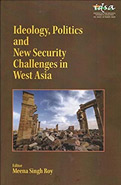
- Publisher: Pentagon Press
2018
Ideology, Politics and New Security Challenges in West Asia, is the collection of papers presented during the international conference on West Asia on January 19-20, 2016. As dramatic changes are taking place in domestic and regional political environments in most countries of the West Asian region, this volume provides an in-depth assessment of the changing security paradigm in the West Asian region, examines the conflicting ideologies and their implications and looks at the resurgence and spread of extremism and terrorism in West Asia, focusing on the ISIS and its impact for the region and beyond. Besides, this edited volume highlights the role and involvement of the extra-regional powers while providing insight into the geopolitical shift in the global energy scenario and its implications for the supplier and consumer countries. Finally, the book examines India's growing partnership with the region, explaining various opportunities and challenges.- ISBN: 978-9386618535,
- Price: ₹1,050/-
- Publisher: Pentagon Press
-
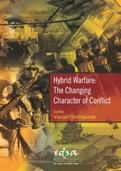
- Publisher: Pentagon Press
2018
A scan of recent conflicts indicates blurring lines between war and peace, state and non-state, regular and irregular and conventional and unconventional. The prevailing security environment is radically different from what it was even a decade ago. The probability of conventional conflict between states or groups of states has been steadily declining while, at the same time, sub-conventional conflict is gaining prominence. These small wars, or niggling wars as some have called it, have also been called hybrid, non-linear, gray zone, unrestricted and a plethora of such names. The ontological and epistemological enquiry of these terms is essential to understand if they allude to the same phenomenon through different frames. Are they the convention or an aberration? The book tries to fill this crucial research gap related to the changing character of conflicts in the strategic discourse in India.- ISBN: 978-93-86618-35-1,
- Price: ₹.995/- $32.95/-
- Publisher: Pentagon Press
-
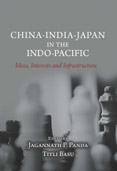
- Publisher: Pentagon Press
2018
This book analyses the competing power politics that exists between the three major Asian powers - China, India, and Japan - on infrastructural development across the Indo-Pacific. It examines the competing policies and perspectives of these Asian powers on infrastructure development initiatives and explores the commonalities and contradictions between them that shape their ideas and interests. In brief, the volume looks into the strategic contention that exists between China's "Belt and Road Initiative" (BRI; earlier officially known as "One Belt, One Road" - OBOR) and Japan's "Expanded Partnership for Quality Infrastructure" (PQI) and initiatives like the Asia-Africa Growth Corridor (AAGC) and position India's geostrategic and geo-economic interests in between these two competing powers and their mammoth infrastructural initiatives.- ISBN: 978-93-86618-42-9,
- Price: ₹.1495/- $38.95/-
- Publisher: Pentagon Press
-
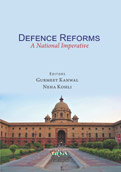
- Publisher: Pentagon Press
2018
Despite being faced with myriad and complex challenges to national security, India's defence structures have not kept pace with changing times. The defence reforms that were undertaken periodically were reactive in nature and, in many cases, responses to crises as well as being sporadic, piecemeal and often ad hoc. The most recent review of security challenges undertaken occurred close to two decades ago, in the aftermath of the Kargil conflict of 1999.- ISBN: 978-93-86618-34-4,
- Price: ₹.995/- $32.95/-
- Publisher: Pentagon Press
-
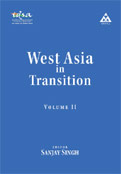
- Publisher: Pentagon Press
2018
West Asia in Transition-Volume II is the result of a project launched by the Delhi Policy Group (DPG) in 2016 to study the rapidly changing socio-political and economic structures as well as emerging trends in West Asia. The publication is a collection` of essays by senior diplomats, academics and young researchers on different aspects of the profound transformation taking place in the West Asian region.- ISBN: 978-93-86618-17-7,
- Price: ₹.1295/- $34.95/-
- Publisher: Pentagon Press
-
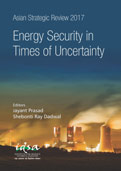
- Publisher: Pentagon Press
2018
The world is entering an era with increased global demand for energy, price volatility, and rising concerns about environmental burdens and the global impact of climate change. Directly or indirectly, these factors have given rise to related concerns such as deregulation and geopolitical uncertainties. Moreover, the challenges related to the energy issue go beyond scientific or technological aspects and extend to access to resources, regional conflicts, pricing and energy infrastructure management.
- ISBN: 78-93-86618-28-3,
- Price: ₹ 795/- , $27.95/-
- Publisher: Pentagon Press
-
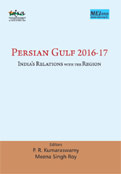
- Publisher: Pentagon Press
2018
The Persian Gulf-2016-17 is fifth in the series published by MEI @ ND and first in collaboration with the IDSA. It Examines India’s bilateral relations with the region and focusses on developments during 2015 and 2016. It gives a comprehensive account of the strategic, political, economic and cultural aspects of bilateral developments and also provides in depth analysis of internal dynamics of the Persian Gulf countries.
- ISBN: 978-93-86618-19-1,
- Price: ₹ 1295
- Publisher: Pentagon Press
-
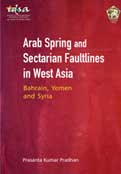
- Publisher: Pentagon Press
2017
Since the outbreak of the Arab unrest, sectarian politics has become more pronounced throughout the West Asian region which is reflected in the growing polarisation of society and politics on narrow sectarian lines. Rulers have adopted sectarian approaches as a measure to secure their regimes.
- ISBN 978-93-86618-05-4,
- Price: ₹ 795
- Publisher: Pentagon Press
